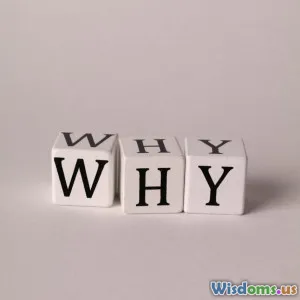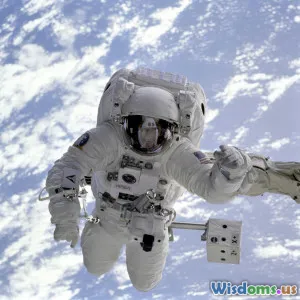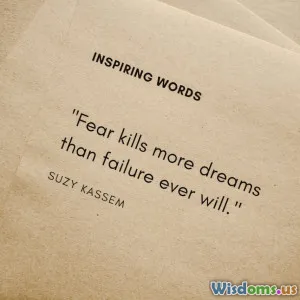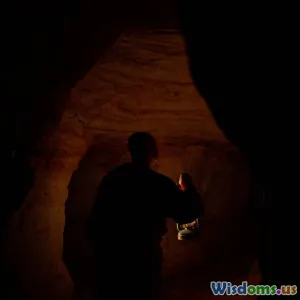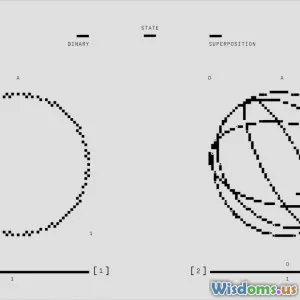
The Intersection of Science and Spirituality: A New Paradigm
7 min read Explore how science and spirituality converge, heralding a transformative paradigm that deepens our understanding of reality. (0 Reviews)
The Intersection of Science and Spirituality: A New Paradigm
Introduction
Imagine a world where particles communicating instantaneously across vast distances, human consciousness influencing reality, and ancient spiritual insights validated through scientific methods. This is not science fiction but the rising frontier where science and spirituality intersect, opening a pathway toward a new paradigm of understanding existence. The old dichotomy depicting science as purely empirical and spirituality as mystical is rapidly dissolving, giving rise to a rich dialogue that challenges our foundational beliefs about reality and ourselves.
Science and Spirituality: Traditional Divide and Emerging Bridges
Historically, science and spirituality existed as largely separate domains. Science has relied on empirical testing, reproducibility, and objective observation. Spirituality, in contrast, emphasizes subjective experience, inner transformation, and transcendent truths. Philosophers like Francis Bacon stressed the importance of scientific observation while mystics like Rumi explored personal union with the divine through experience.
Yet, the late 20th and early 21st centuries have revealed fascinating intersections. The convergence is driven by several academic and experiential threads:
Quantum Physics and the Nature of Reality
Quantum physics uncovered phenomena that questions the classical, mechanistic worldview. Consider entanglement — particles instantaneously affecting one another regardless of distance. Physicist David Bohm proposed the "implicate order," a foundational reality where everything is interconnected beneath apparent separateness.
This challenges the traditional materialist notion and resonates with spiritual concepts of unity. The late physicist John Archibald Wheeler famously stated, "We are participators in bringing the universe into being," suggesting consciousness inseparable from the fabric of reality.
Consciousness Studies: Bridging Mind and Matter
Consciousness remains one of the most profound mysteries. Neuroscience increasingly recognizes that brain activity alone cannot fully explain subjective experience — sometimes called the "hard problem" of consciousness.
Philippe Guillemant, a physicist exploring the possibility of precognitive intelligence, and Giulio Tononi's Integrated Information Theory both reflect bolstered efforts to scientifically model consciousness, blurring lines with spiritual interpretations of awareness.
Ancient Wisdom Meets Modern Science
Traditional spiritual practices—such as meditation, mindfulness, and yoga—have gained empirical support for their measurable benefits on mental and physical health. Studies reveal practices can rewire neural pathways, reduce stress hormones, and enhance wellbeing.
Moreover, indigenous cosmologies often present a worldview of interconnectedness that parallels emerging ecological science and systems thinking, emphasizing relationality rather than reductionism.
Key Examples Uniting Science and Spirituality
The Placebo Effect and Mind-Body Interaction
The placebo effect exemplifies a dynamic where belief and expectation trigger profound physiological changes. This phenomenon implies the mind’s capacity to influence bodily functions, supporting ideas prevalent in many spiritual traditions about the power of intention.
Near-Death Experiences and Consciousness Beyond Brain Activity
Reports of near-death experiences (NDE) where individuals describe consciousness amid clinical death challenge materialistic explanations. Studies led by Dr. Sam Parnia in cardiac arrest survivors suggest consciousness may extend beyond measurable brain activity, hinting at dimensions spirituality has long embraced.
Psychedelic Research and Mystical States
Recent resurgence in psychedelic studies, such as those using psilocybin, highlight how these substances can facilitate mystical experiences with lasting positive effects on wellbeing and worldview.
Scientists and spiritual practitioners alike are exploring these states to deepen understanding of consciousness, transcendence, and healing.
Towards a New Paradigm: Implications and Opportunities
The growing integration encourages a paradigm characterized by:
-
Holism Over Reductionism: Instead of dissecting phenomena into isolated parts, this approach emphasizes systems, relationships, and context, reflecting views from ecology to quantum field theories.
-
Interdisciplinary Dialogue: Collaboration among physicists, neuroscientists, psychologists, and spiritual teachers fosters inclusive methodologies and expanded epistemologies.
-
Expanded Notions of Evidence: Validating subjective experience alongside objective data broadens how knowledge is acquired and honored.
-
Practical Applications: Innovations in healthcare, psychology, and education increasingly incorporate mindful awareness, intention-setting, and integrative therapies inspired by this fusion.
Conclusion
The intersection of science and spirituality is not merely an intellectual curiosity but a transformative movement reshaping how humanity understands itself and the cosmos. By embracing the strengths of both realms, we move beyond polarized thinking toward a richer, interconnected vision of reality. This evolving paradigm invites us not only to rethink facts but also to reimagine our role as conscious participants in the unfolding universe.
As physicist Fritjof Capra eloquently said, "Science and spirituality are both searching for reality; they just approach it from different directions." Recognizing their complementarity could be the key to unlocking new horizons of knowledge, healing, and meaning.
Are we ready to participate consciously in co-creating the future that science and spirituality jointly illuminate? The journey has already begun.
Rate the Post
User Reviews
Popular Posts













